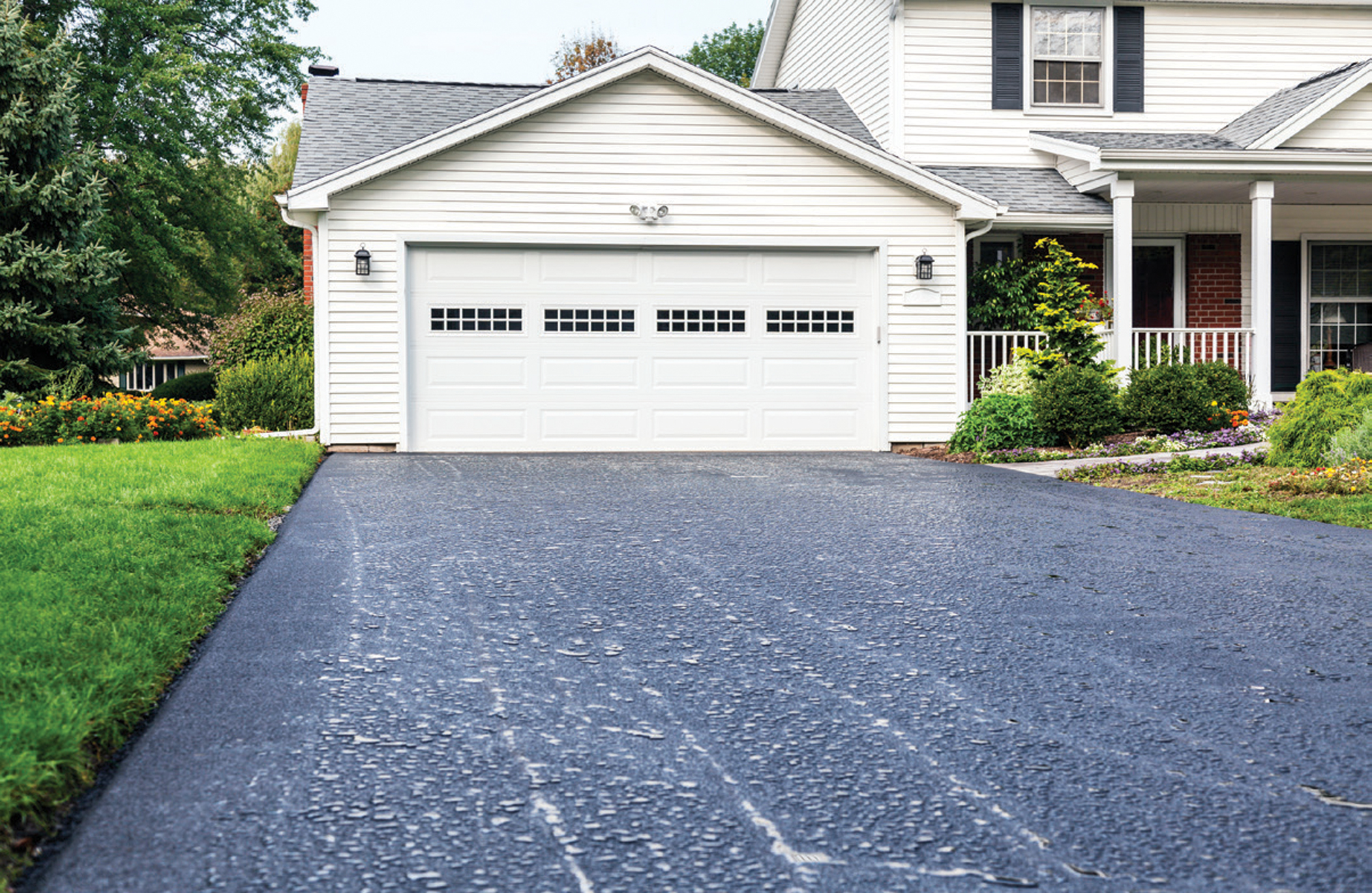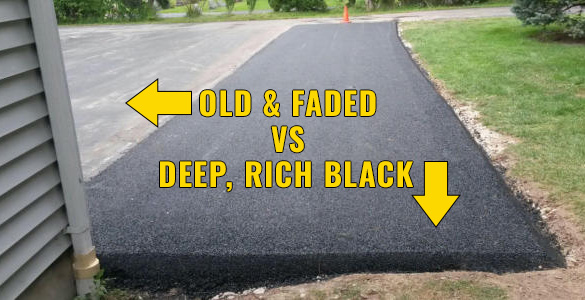Release the Prospective: Regrading and Asphalt Sealing for Industrial Spaces
Warm Mix Asphalt: A Lasting Remedy for Pavement
Hot Mix Asphalt (HMA) has become a leading lasting selection for sidewalk remedies, supplying a myriad of cutting-edge innovations and environmental benefits. Its capacity to recycle products and lower power usage presents a compelling case for its adoption in roadway building projects. The long-lasting efficiency and sturdiness of HMA make it a preferred option for framework development. As the demand for environmentally friendly building techniques expands, checking out the subtleties of HMA's sustainability can give valuable insights into the future of sidewalk services.
Environmental Benefits of Warm Mix Asphalt

Additionally, Warm Mix Asphalt helps to alleviate city warm island results. Its dark color takes in sunshine, minimizing the amount of heat mirrored back into the atmosphere contrasted to lighter-colored sidewalks. This can decrease ambient temperatures in city locations, decreasing the need for air conditioning and eventually lowering energy consumption.
On top of that, Hot Mix Asphalt adds to enhanced stormwater monitoring. Its porous nature allows water to recharge and infiltrate the pavement groundwater materials, minimizing drainage and the threat of flooding. These environmental benefits make Hot Mix Asphalt a sustainable choice for paving roads and highways.
Power Performance in HMA Manufacturing
Is power performance a vital consider the production of Hot Mix Asphalt (HMA)? Definitely. Energy plays a significant duty in the production of HMA, affecting both cost and ecological sustainability. One key aspect of power performance in HMA production is using cozy mix asphalt (WMA) modern technologies (hot mix asphalt). WMA permits the mixing and placement of asphalt at lower temperature levels contrasted to standard hot mix asphalt, leading to minimized energy consumption throughout manufacturing. This process not only decreases gas usage but additionally decreases greenhouse gas exhausts, making it a much more eco-friendly alternative.
Additionally, advancements in plant innovations have actually led to more energy-efficient HMA production procedures. By optimizing energy use in HMA manufacturing, the industry can lower its carbon footprint while preserving high-grade pavement materials.
Recyclability of Warm Mix Asphalt
The recyclability of Warm Mix Asphalt (HMA) is a critical element of its sustainability and lasting ecological impact. HMA is just one of the most recycled visit the site products in the USA, with over 100 million tons of reclaimed asphalt pavement (RAP) being recycled every year in new sidewalk construction. Recycling HMA supplies a number of environmental advantages, such as minimizing the requirement for virgin products, lowering energy usage during production, and reducing the amount of waste sent to land fills.
The process of recycling HMA involves grating the existing sidewalk, crushing it into smaller sized items, and mixing it with new accumulation and asphalt binder to produce a recycled mix. Generally, the recyclability of HMA plays a considerable function in promoting lasting methods within the sidewalk market.

Long-Term Performance of HMA
Asphalt pavements show resilience and strength over an extended duration, mirroring the long-lasting efficiency of Warm Mix Asphalt (HMA) In addition, developments in HMA modern technology, such as the use of polymer-modified binders and warm mix asphalt, have actually better improved the durability and durability of HMA sidewalks. By focusing on quality building and maintenance practices, HMA continues to confirm itself as a sustainable and cost-effective option for long-lasting pavement facilities.

HMA: Longevity and Sustainability
Showing both toughness and sustainability, Warm Mix Asphalt (HMA) this content has come to be a foundation in the construction of resilient pavement infrastructures - regrading. HMA's longevity stems from its capacity to endure hefty tons, severe climate condition, and high website traffic quantities, making it a reputable option for streets, freeways, and airport runways. The make-up of HMA, which generally consists of aggregates, binder, and filler, plays a vital role in enhancing its durability and resistance to deterioration
In addition, HMA's sustainability hinges on its recyclability and energy-efficient production process. The capability to recycle redeemed asphalt sidewalk (RAP) in brand-new HMA mixtures decreases the need for virgin products and decreases the environmental effect of sidewalk building and construction and upkeep. Additionally, the energy efficiency of creating HMA lies in useful source its reduced blending temperature levels contrasted to various other sidewalk products, leading to minimized power intake and greenhouse gas exhausts.
Verdict
In conclusion, warm mix asphalt (HMA) uses a lasting service for pavement with its environmentally pleasant qualities. HMA's recyclability, energy performance in production, and lasting toughness make it an environment-friendly choice for roadway building.
HMA is one of the most recycled products in the United States, with over 100 million loads of reclaimed asphalt pavement (RAP) being reused every year in brand-new sidewalk building.The procedure of reusing HMA includes crushing the existing pavement, squashing it right into smaller items, and blending it with new accumulation and asphalt binder to produce a recycled mix.Asphalt sidewalks demonstrate durability and durability over an extended duration, reflecting the lasting performance of Warm Mix Asphalt (HMA) Additionally, improvements in HMA technology, such as the use of polymer-modified binders and cozy mix asphalt, have actually better boosted the toughness and longevity of HMA sidewalks. The capacity to recycle recovered asphalt sidewalk (RAP) in brand-new HMA mixes lowers the demand for virgin materials and decreases the environmental effect of sidewalk construction and maintenance.